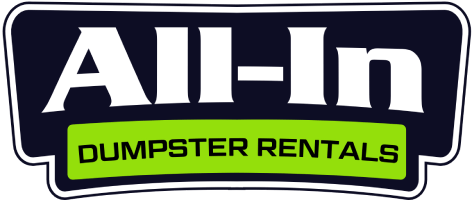Community cleanup projects have become increasingly popular in Asheville neighborhoods as residents join forces to beautify shared spaces. But many homeowners don’t realize that collaborating on dumpster rentals can dramatically cut costs while fostering neighborhood connections. As Asheville continues to grow and develop, finding smart ways to manage waste during these collective efforts has become essential.
Here in Western North Carolina, our unique mountain landscape and tight-knit communities create perfect opportunities for neighborhood collaboration. I’ve witnessed countless successful community cleanups across Buncombe County where residents pooled resources for dumpster rentals. From historic neighborhoods near downtown Asheville to newer developments in Arden and Fletcher, these shared waste management solutions have become a local tradition that saves money while strengthening community bonds.
Why Share Dumpster Costs in Asheville Neighborhoods?
Before diving into the logistics, let’s talk about why sharing dumpster costs makes particular sense in our Asheville community. The average dumpster rental in Western North Carolina can cost between $300-$600 depending on size and duration. When split between 5-10 neighbors, that cost becomes remarkably affordable.
Beyond the obvious financial benefits, shared cleanups address several challenges unique to our mountain region:
Our seasonal debris challenges from fall leaves to spring storms create periodic needs for extra waste capacity that affect entire streets or neighborhoods simultaneously.
Many Asheville neighborhoods, especially those near downtown or in historic districts, have limited individual storage space for waste while awaiting pickup.
The community-oriented culture of Asheville naturally supports collaborative projects that improve shared spaces and street appeal.
Starting the Conversation: Organizing Your Neighborhood
The first step toward sharing dumpster costs is simply starting the conversation. Many neighbors are likely facing similar cleanup challenges but haven’t considered the shared solution option.
Begin by identifying potential cleanup partners on your street or in your immediate vicinity. In Asheville’s walkable neighborhoods, this might include 5-10 homes within easy walking distance. In more spread-out areas like parts of Hendersonville or Waynesville, you might focus on 3-5 homes that share a common area or road access point.
Neighborhood apps and community boards have become popular tools for organizing these efforts. A simple post like “Looking to share a dumpster rental for spring cleanup – interested in splitting costs?” can quickly gauge interest. Alternatively, good old-fashioned face-to-face conversations work wonderfully in our friendly mountain communities.
When approaching neighbors, focus on the mutual benefits: “I’m planning to rent a dumpster for my yard cleanup next month and thought we might share the cost if you’re doing similar work.” This framing makes the proposition appealing rather than feeling like you’re asking for a favor.
Planning Your Community Cleanup
Once you’ve gathered interested participants, it’s time to plan the logistics. This planning stage is crucial for a smooth experience that will encourage future collaborations.
First, determine the optimal timing. In Asheville, spring and fall tend to be popular cleanup seasons, but the specific timing should accommodate most participants’ schedules. Consider planning around a weekend when most neighbors will be home and available to work on their portions of the cleanup.
Next, estimate the collective waste volume. Have each participating household briefly describe their planned cleanup projects and roughly estimate their expected waste. Are they trimming trees? Clearing old furniture? Renovating a small space? This information helps determine the appropriate dumpster size.
For typical neighborhood cleanups in the Asheville area, a 10-yard or 13-yard dumpster often provides sufficient capacity for 5-8 homes doing moderate cleaning or yard work. For more extensive projects or larger groups, a 15-yard dumpster might be necessary.
Finally, agree on the rental duration. Most dumpster rental companies in Western North Carolina offer flexible scheduling, but standard rentals typically last 3-7 days. Consider whether your community cleanup will be a concentrated weekend effort or spread across several days to accommodate varied schedules.
Fair Cost Sharing: Approaches That Work
Determining how to divide costs fairly is perhaps the most sensitive aspect of shared dumpster rentals. Several approaches have worked well in Asheville neighborhoods:
Equal splits work well for similar homes with comparable cleanup needs. If most participants are doing similar yard work or basic household decluttering, dividing the total cost evenly among all participants is straightforward and fair.
Volume-based contributions make sense when projects vary significantly. If one neighbor is renovating a bathroom while others are just doing light yard work, consider a weighted division where larger projects contribute proportionally more.
Some neighborhoods have successfully implemented a “pay-what-you-can” approach within reasonable boundaries, allowing flexibility while ensuring the total cost is covered. This works particularly well in diverse neighborhoods with varying household incomes.
Whatever approach you choose, clear communication is essential. Discuss and agree on the payment structure before finalizing the rental to avoid misunderstandings later.
Logistics of Dumpster Placement in Asheville Neighborhoods
Dumpster placement requires thoughtful consideration, especially in Asheville’s varied neighborhood layouts. From narrow streets in historic districts to steep driveways in mountain developments, each location presents unique challenges.
The ideal location balances accessibility for all participants with practical considerations like space requirements and property protection. Common placement options include:
A centrally located driveway offered by one participant (with that neighbor perhaps receiving a small discount for using their space)
A shared cul-de-sac or wide section of street (with proper permissions from local authorities if using public space)
A common area in planned communities or subdivisions (with HOA approval where applicable)
Remember that dumpster companies need adequate space not just for the container but also for delivery and pickup access. The delivery truck needs clearance for approach and placement, which can be challenging on some of Asheville’s narrower or steeper roads.
Most local dumpster rental services will help assess placement options during booking. At All-In Dumpster Rentals, we frequently work with neighborhood groups to find the optimal placement solution that meets everyone’s needs while respecting property and access requirements.
Setting Ground Rules for Shared Use
Clear expectations prevent most potential conflicts in shared dumpster arrangements. Before the dumpster arrives, agree on basic guidelines:
Establish a schedule if necessary. Some neighborhoods prefer designating specific time slots for each household to avoid crowding. Others find that organic sharing works fine, especially for weekend cleanup events where everyone is working simultaneously.
Discuss prohibited items clearly. Most dumpster rentals prohibit hazardous materials, certain electronics, and other specialized waste. Make sure all participants understand these restrictions to avoid surcharges or complications.
Agree on filling practices. The “fill from the back” approach works well for shared dumpsters, with each household adding materials in a way that maximizes space usage. This prevents the frustrating situation where bulky items are haphazardly placed, wasting valuable capacity.
Consider appointing a primary contact person who will coordinate with the rental company. This simplifies communication and provides clear responsibility for any questions or concerns that arise.
Beyond Cost Sharing: Community Building Benefits
The advantages of shared dumpster rentals extend far beyond financial savings. These collaborations create valuable community connections that benefit Asheville neighborhoods in multiple ways:
Working side-by-side on cleanup projects naturally fosters neighbor relationships. Many participants report that these shared projects led to ongoing friendships and support networks that enriched their experience of living in their neighborhood.
The visible improvement of multiple properties creates momentum for broader neighborhood beautification. What starts as a practical cost-sharing measure often evolves into ongoing community pride and maintenance efforts.
Successful collaborations build foundations for future shared projects. Many neighborhoods that start with dumpster sharing move on to coordinate other community improvements, from garden projects to safety initiatives.
These connections are particularly valuable in Asheville’s diverse neighborhoods, where residents might not otherwise have opportunities to connect across demographic differences. The shared goal of neighborhood improvement transcends many social boundaries.
Case Study: West Asheville Neighborhood Cleanup
One particularly successful example comes from a West Asheville neighborhood near Haywood Road. What began as three neighbors discussing their spring cleanup plans expanded to include eight households spanning two adjacent streets.
The group opted for a 13-yard dumpster placed in a central driveway, with costs divided proportionally based on each household’s estimated usage. They scheduled their cleanup for a single Saturday, turning it into a neighborhood event complete with a shared lunch break.
Beyond the immediate benefit of affordable waste removal, participants reported several unexpected advantages:
Tools and equipment were shared across households, reducing the need for duplicate purchases or rentals.
Participants helped each other with physically demanding tasks, making the work lighter for everyone.
The visible activity sparked interest from other neighbors, who have already expressed interest in joining the next seasonal cleanup.
Most importantly, new connections formed that have endured beyond the cleanup day, strengthening the neighborhood’s sense of community and mutual support.
Practical Tips from Asheville’s Dumpster Sharing Veterans
After facilitating numerous neighborhood dumpster rentals across Western North Carolina, we’ve collected these practical tips from experienced community organizers:
Create a simple written agreement, even among friends. A basic document outlining costs, timing, and responsibilities prevents misunderstandings.
Collect payment before the dumpster arrives. This prevents awkward situations if someone later decides to reduce their participation.
Take before-and-after photos of the dumpster placement area to document any existing property conditions and ensure everything is properly restored after removal.
Consider planning a small neighborhood gathering to coincide with the cleanup completion. A simple potluck or cookout celebrates the accomplishment and strengthens new connections.
Start small and build on success. First-time collaborations might involve just 3-4 nearby homes, with expansion in future events as systems and trust develop.
Moving Forward: From One-Time Sharing to Ongoing Collaboration
Many Asheville neighborhoods have evolved their dumpster sharing from one-time events to seasonal traditions. This progression often follows a natural path:
The initial shared rental focuses on immediate needs and testing the collaborative approach.
With a successful experience, neighbors often plan for regular seasonal rentals – typically spring and fall in our region.
As relationships strengthen, the group might explore other shared services, from lawn equipment rentals to professional services like pressure washing or gutter cleaning.
Some neighborhoods eventually formalize their collaboration through neighborhood associations or committees that coordinate various community improvement efforts.
The key to sustainability is maintaining clear communication and equitable participation. Regular reassessment of needs and fair contribution ensures the system continues to work for everyone involved.
Ready to organize your own neighborhood dumpster sharing in Asheville? Your local waste management providers are often eager to support these community efforts. At All-In Dumpster Rentals, we’re particularly experienced with neighborhood collaborations throughout Buncombe, Henderson, Haywood, and Madison counties.
By working together, Asheville neighbors can not only save on cleanup costs but also build stronger, more connected communities. The mountains have always drawn people seeking both natural beauty and meaningful community—shared neighborhood projects honor both those traditions.

